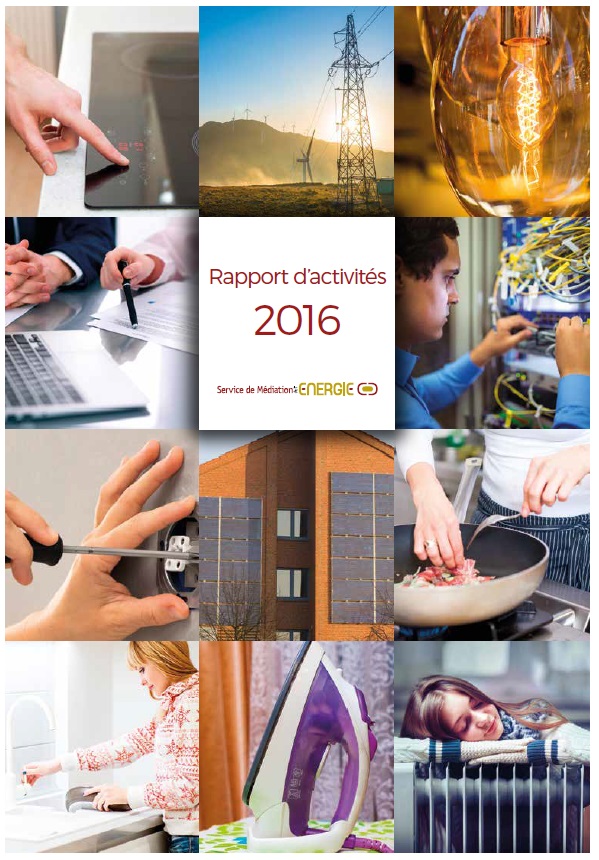In 2016, the Belgian Federal Energy Ombudsman Service received a total of 5,526 complaints (compared to 4,211 complaints in 2015), of which 61.7% were in Dutch, 37.7% in French and 0.5% in German.
According to the Ombudsman Service, this increase by 31% (+ 1,315 complaints) is mainly due to a number of policies that in 2015 and 2016 caused sensitive price rises in the electricity bill, especially in Flanders, such as the VAT increase from 6 to 21%, the abolition of the free kWh of electricity in Flanders, the increase of the Flemish Energy Fund contribution to €100 for low and average consumptions and the evolution of the distribution network tariffs.
The complaints received in 2016 were mainly related to:
- meter data and the processing of these data (20.8%);
- the clarity of the prices and tariffs applied (16.2%)
- the billing/invoicing process (16%);
- payment issues (13.6%);
- market practices such as pre-contractual information and sales and marketing market practices (11.5%).
In 2016, the Ombudsman Service also handled a number of specific types of complaints, that is, disputes regarding:
- switching suppliers (5.5%);
- the quality of the service provided by call centres and through other media (3.8%);
- exclusively regional competences, such as the compliance with social and environmental public service obligations (6%), network connections (1%), power outages (0.5%) and cut-offs or cancelling of contracts due to non-payment (4%).
It is important to note that for market practices disputes and supplier switches a gradual rise can be observed since two years which is due to some market practices such as:
- (door-to-door) sales of energy contracts that do not always follow the rules of the sectoral code of conduct;
- the charging of a hidden termination fee on a final invoice (in the case of an early termination of the energy contract, the fixed fee for an entire year is billed instead of just the period of actual energy supply);
- the extension of energy contracts with increased prices without asking the prior agreement of the customer.
Of the complaints that were admissible (43% of the complaints), 60% were closed by the Ombudsman Service and 77.8% ended with positive results through an amicable agreement or arrangement.
The files closed with a positive outcome resulted in a total amount of €383,518 in financial compensation or rectification, or an average of €224 per closed admissible complaint in 2016.
In all, the Ombudsman Service formulated 122 recommendations that were related to the following subjects:
- the charging of a fixed fee on the final invoice as a hidden termination fee;
- the extension of energy contracts at a higher energy price;
- charging energy consumption in the name of occupant/owner without a valid energy contract;
- the retroactive application of social tariffs for electricity and natural gas;
- late invoicing of energy consumption;
- correction of meter data.
In order to remedy these specific issues, the Ombudsman Service has formulated a policy recommendation to the federal ministers responsible for energy, Ms Marie-Christine Marghem, and consumer protection, Mr Kris Peeters.
With this policy recommendation, the Ombudsman Service is asking for the improvement and reinforcement of the Consumer Agreement for the energy sector by:
- charging the fixed fee or subscription fee on the final invoice pro rata the delivery period in order to avoid termination fees on early departure;
- the extension of energy contracts with the cheapest available product;
- when renewing the energy contracts at a higher price, make it subject to the explicit request for prior agreement by the customer;
- charging the energy consumption to the occupant/owner as a result of a move-in only when a valid supply contract exists;
- restricting the limitation period for the calculation of the (corrected) energy consumption to 12 months from the reception of the (corrected) meter reading by the energy supplier;
- the following measures in case of payment problems: payment plans without interest or costs; limitation of the collection costs of all unpaid invoices to a maximum of €55; a guarantee rule of a maximum down payment of 2 months to be paid back automatically after a period of 12 months without non-payment; stating outstanding balances on the settlement invoice; and having the energy supplier as the primary contact point if the debts are transferred to a third (foreign) debt collector;
- the extension of the consumer agreement to SMEs (end users with an annual consumption of max. 50,000 kWh electricity and 100,000 kWh natural gas);
- having the distribution system operators also sign the Consumer Agreement.
—


